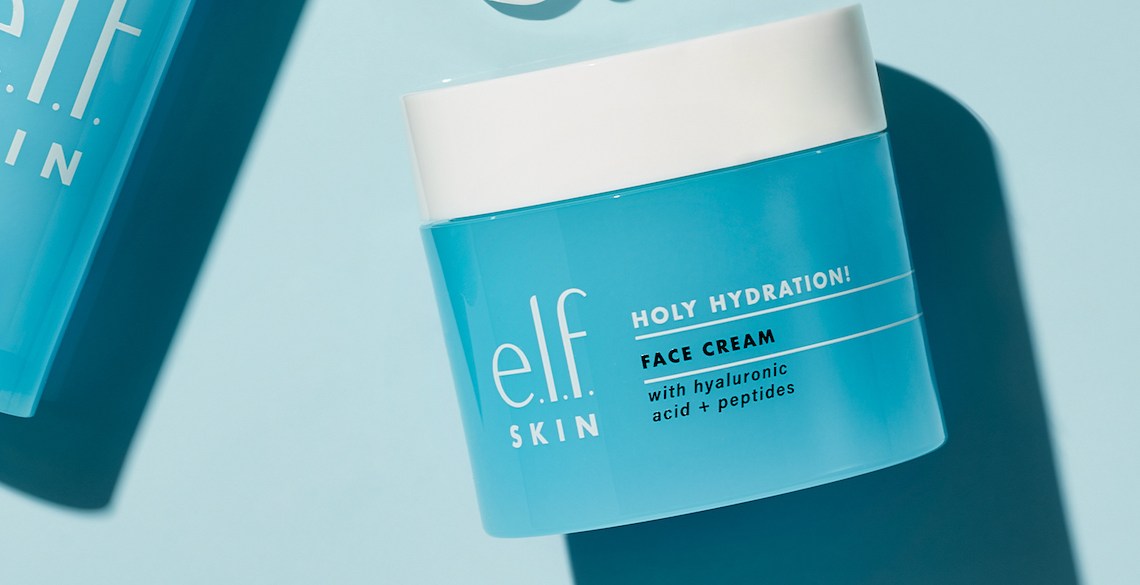E.l.f. Beauty is formalizing its focus on skin care with plans to carve out its skin-care products from E.l.f Cosmetics.
E.l.f. Cosmetics initially launched skin care in 2015, and it has grown to make up a “healthy” portion of the brand’s sales, said Gayitri Budhraja, head of brand at E.l.f. Beauty. E.l.f Skin, set to be announced Tuesday night, will include existing products like a cleansing balm, moisturizers and acne products, all selling for $25 or less at E.l.f. Beauty’s current retail partners. As a standalone brand, E.l.f Skin will receive additional marketing investment, dedicated space on ElfCosmetics.com and increased social posts on skin care. There are no plans for separate social channels, said Budhraja.
“The truth is that E.l.f Skin has been wedged under color. [E.l.f Skin] may not be something that consumers perceive, but part of making this shift is changing our mindsets inside the organization,” Budhraja said. “The mindsets around color and skin care are fundamentally different. Color is driven by trend and inspiration, and skin care is driven by efficacy and education.”
By carving out E.l.f Skin, E.l.f Beauty is able to further expand its portfolio with four brands and set it up for even further growth. E.l.f Beauty acquired clean skin-care company Well People in Feb. 2020. Since then, Well People’s dermatologist co-founder Dr. Renee Snyder has contributed to clean reformulation and product development across the business. E.l.f Beauty then launched Keys Soulcare in Sept. 2020 with singer-songwriter Alicia Keys.
“With our acquisition of Well People, the launch of Keys Soulcare and the unveiling of E.l.f Skin, we have built a portfolio of distinct, yet complementary brands,” said Tarang Amin, CEO of E.l.f Beauty, during the fourth-quarter and year-end earnings call in May. “Looking ahead, we see potential to add fast-growing brands to our portfolio, to expand our capabilities into adjacent categories or different consumer segments, while leveraging our multiple areas of advantage.”
Such an expansion would come off the successful long-term turnaround strategy begun in 2019 to improve the company’s sales and growth. Key strategies included closing its standalone stores and increasing focus on mass retail distribution. Since then, E.l.f Cosmetics bucked the industry trend of declining cosmetic sales with 13 consecutive quarters of net sales growth. For fiscal year 2022, its net sales increased 23% year-over-year to $392 million, and the company projects net sales to grow 10-12% in fiscal 2023.
Beginning in late June, E.l.f Skin will kick off its first dedicated digital campaign in order to inform existing customers of its offerings, as well as drive new consumer acquisitions.
“[Skin care] is not a trade-off. We are not taking our eye off of what we’re doing from a color perspective,” said Budhraja.




